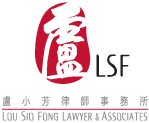Best Collaborative Law Lawyers in Macao
Share your needs with us, get contacted by law firms.
Free. Takes 2 min.
Free Guide to Hiring a Family Lawyer
Or refine your search by selecting a city:
List of the best lawyers in Macao
About Collaborative Law in Macao
Collaborative Law in Macao is an alternative dispute resolution method where both parties work together with their lawyers to reach a mutually acceptable agreement outside of court. It is a voluntary and confidential process that focuses on problem-solving without the need for extensive court involvement.
Why You May Need a Lawyer
Having a lawyer experienced in Collaborative Law in Macao can be crucial in situations involving family disputes, inheritance conflicts, or business disagreements. A lawyer can help navigate the collaborative process, ensure your rights are protected, and work towards a fair resolution for all parties involved.
Local Laws Overview
In Macao, Collaborative Law is recognized as a valid method for resolving disputes. The local laws emphasize confidentiality, openness, and a commitment to reaching a fair agreement through collaborative efforts. It is important to understand the legal framework and requirements specific to Macao when engaging in a collaborative process.
Frequently Asked Questions
1. What is the main goal of Collaborative Law in Macao?
The main goal of Collaborative Law in Macao is to assist individuals in resolving disputes amicably without the need for court intervention. It allows parties to work together to reach a mutually beneficial agreement.
2. How is Collaborative Law different from traditional litigation?
Collaborative Law focuses on cooperation, communication, and problem-solving, whereas traditional litigation involves adversarial court proceedings. Collaborative Law aims to preserve relationships and promote peaceful resolution.
3. Are the outcomes of Collaborative Law legally binding in Macao?
Yes, the outcomes of Collaborative Law agreements in Macao are legally binding once both parties have signed the agreement. It is important to ensure that the terms of the agreement comply with local laws and regulations.
4. Can any type of dispute be resolved through Collaborative Law in Macao?
Collaborative Law in Macao is commonly used for family law matters, inheritance disputes, and commercial conflicts. It may not be suitable for criminal cases or issues requiring immediate court intervention.
5. How long does the Collaborative Law process typically take in Macao?
The duration of the Collaborative Law process in Macao varies depending on the complexity of the dispute and the willingness of both parties to cooperate. Some cases may be resolved in a few meetings, while others may take several months to reach an agreement.
6. What are the advantages of choosing Collaborative Law over traditional litigation in Macao?
Some advantages of Collaborative Law in Macao include cost-effectiveness, confidentiality, faster resolution times, and the ability to maintain control over the outcome. It also promotes cooperative problem-solving and reduces the emotional strain often associated with court proceedings.
7. Can I change lawyers during the Collaborative Law process in Macao?
It is possible to change lawyers during the Collaborative Law process in Macao if you are not satisfied with your current representation. However, it is important to consider the impact this may have on the progress of your case and the dynamics of the collaborative team.
8. What happens if an agreement cannot be reached through Collaborative Law in Macao?
If an agreement cannot be reached through Collaborative Law in Macao, the parties may need to explore other dispute resolution options, such as mediation or arbitration. In some cases, litigation may be necessary to resolve the dispute through court proceedings.
9. Is there a code of ethics that Collaborative Law practitioners in Macao must adhere to?
Yes, Collaborative Law practitioners in Macao are expected to adhere to a code of ethics that promotes honesty, integrity, and professionalism. This code helps ensure that all parties are treated fairly and that the collaborative process is conducted with respect and transparency.
10. How can I find a qualified Collaborative Law lawyer in Macao?
You can find a qualified Collaborative Law lawyer in Macao by seeking recommendations from trusted sources, such as legal associations, colleagues, or friends who have experience with Collaborative Law. It is important to research potential lawyers, schedule consultations, and choose a practitioner who aligns with your goals and values.
Additional Resources
For more information on Collaborative Law in Macao, you can contact the Macao Lawyers Association or visit their website for a list of qualified practitioners. You may also find helpful resources through the Macao Mediation Center or other organizations dedicated to alternative dispute resolution.
Next Steps
If you require legal assistance in Collaborative Law in Macao, consider reaching out to a qualified lawyer who specializes in this area. Schedule an initial consultation to discuss your case, explore your options, and determine the best course of action for resolving your dispute collaboratively.
Lawzana helps you find the best lawyers and law firms in Macao through a curated and pre-screened list of qualified legal professionals. Our platform offers rankings and detailed profiles of attorneys and law firms, allowing you to compare based on practice areas, including Collaborative Law, experience, and client feedback.
Each profile includes a description of the firm's areas of practice, client reviews, team members and partners, year of establishment, spoken languages, office locations, contact information, social media presence, and any published articles or resources. Most firms on our platform speak English and are experienced in both local and international legal matters.
Get a quote from top-rated law firms in Macao — quickly, securely, and without unnecessary hassle.
Disclaimer:
The information provided on this page is for general informational purposes only and does not constitute legal advice. While we strive to ensure the accuracy and relevance of the content, legal information may change over time, and interpretations of the law can vary. You should always consult with a qualified legal professional for advice specific to your situation.
We disclaim all liability for actions taken or not taken based on the content of this page. If you believe any information is incorrect or outdated, please contact us, and we will review and update it where appropriate.
Browse collaborative law law firms by city in Macao
Refine your search by selecting a city.









